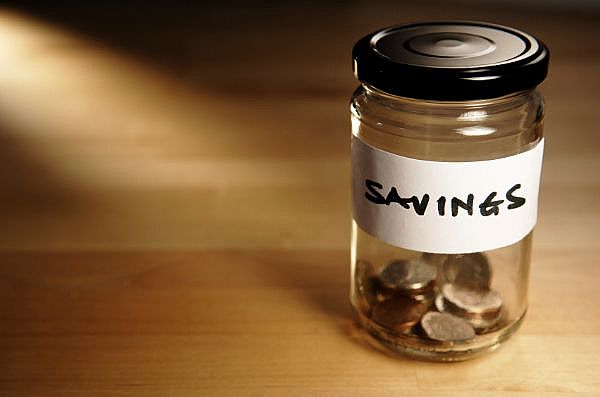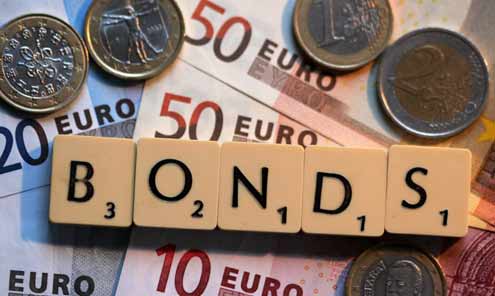How to save finances: Banks vs Exchange

Traditionally in our country, and in the rest of the world, when it comes to the preservation of earnings, people first of all think about applying to the bank for this. In times of stability, this is quite a reasonable decision, but now that the Russian banking system is going through hard times , it makes sense to think about how not to lose, and ideally, multiply, savings by alternative means. For example, turning to financial markets.
Why change something
In general, the Russian banking system at the moment, objectively, is not in the best condition. There are many reasons for this: the general unsatisfactory state of the country's economy, the need for structural reforms, and the fall in total effective demand, and the debt load of companies and the public, and, as a result, a crisis of confidence in the banking system.
')
Objectively, the rates on deposits in domestic banks cannot be called high. At best, for more or less reliable commercial banks, they only catch up with inflation. And there is no reason to talk about rates of state or semi-state banks - they are just a few percentage points below inflation. The last nail in the opportunity to increase funds with the help of deposits hammered the weakening of the ruble against the dollar and the euro. Given the recent trends in the weakening of the ruble, it is quite difficult for those who keep money in rubles to even count on not losing anything, not to mention earning a percentage or other on the deposit.
But, if you take money from the bank, then what to invest in: currency, in our or foreign real estate? In gold or antiques? What other options are there?

Stock market
Playing on the stock exchange , of course, is by definition a risky investment, since there is always the likelihood of “not guessing” the direction of the price movement of a given security and incurring losses. However, in fact, trading in stocks or derivatives is not the only way how the stock market can be used to use your own funds. Recently, both stock exchanges and brokers began to offer their clients / investors new types of services. For example, this placement of funds in one-day loans secured by liquid securities. Let's call such investments “Placement of funds on demand”. It is clear that this is not a deposit or a demand deposit account, but since the liquidity of investments allows an investor to exit at any time, we will use this name. So what is
Placement of funds
In fact, it is an alternative to well-known demand deposits. In this case, the broker will lead the investor to the usual brokerage account and send his money to the exchange trading, where they will lie and be used. Further, these funds will be invested daily (placed) on repo transactions in liquid securities for a period of one day. This is what achieves liquidity and the ability to withdraw money from your brokerage account on any given day. On the Moscow Exchange, where repos are concluded, they go with the so-called central counterparty. This is what the exchange substitutes in the implementation of the transaction between the two bidders. The central counterparty is the exchange itself. For example, broker A makes a deal on a stock exchange with broker B. The technology of the Central Committee divides this transaction into two: the first between broker A and the Central Committee, the second opposite direction between the Central Committee and broker B. As a result, the Central Committee or the stock exchange takes all possible risks of the transaction .
We will understand now what is repos? A repo is a so-called repurchase transaction. It looks like this. The buyer's side of the first part of the repo (investor) buys securities on the market. In exchange for the received securities, money is given to the seller in the first part of the repo (the borrower). In fact, the seller borrows money for a period of one day on the security of its liquid assets. The seller pays interest to the investor for using this money. The interest rate depends on the current market conditions in the money market and on the quality of the securities transferred as collateral.
The next day, the borrower returns the money with interest to the investor and receives back his securities from the pledge. Until the borrower has paid off - the securities are in the investor’s account and he can dispose of them by right of ownership.
This repo is repeated every day with liquid stocks of Russian issuers until the investor needs money or until it finds a better use for them than simply keeping it on demand.
The advantage of this method in the complete absence of market risks is the exchange, it is not a bank that can go bankrupt or lose its license overnight, as well as the fact that interest on such a deposit is charged daily and does not burn. That is, you can take money any day. The downside for many may be the minimum amount of funds accepted for such operations - it can make a tidy sum (from us - from 10 million rubles).
Those who grew out of the need to keep money at hand, that is, demand and has the opportunity to invest them for a longer period, then here the stock market can provide substantial assistance. After all, the stock market is not only stocks, but also debt instruments. Consider, for example, the possibility of investing in eurobonds.
Investing in Eurobonds
Anyone who has ever studied the issue of opening long-term deposits in Russian banks is aware that the interest rates they offer can hardly be called high. The stock market in this regard can offer a more profitable option - placing funds in eurobonds. This option is more suitable for serious investors, since brokers work with this service starting from 1 million dollars (it does not matter whether it is in rubles or directly in dollars). The organization and support of such transactions is quite expensive, and this explains such large sums.

The term of investment in such cases is usually 1 year or more, and you can count on 5-7% annual yield in foreign currency or 10-18% in rubles (money is kept on the stock exchange and with their help swap transactions in currency are carried out). In case of placement of money in Eurobonds, the credit risks of the issuer of the bonds arise, but, objectively, they are not so high. Since eurobonds can be issued only by very large Russian corporations, the credit quality of which is carefully analyzed by Western rating agencies and investment bankers. For example, these are corporations such as Gazprom, Rosneft, Lukoil, Severstal, the same Sberbank borrows money in the west much more expensively than it does here in Russia.
Currency investments
Dollars or euros can be bought at a bank, which, with fluctuations in the exchange rate of the ruble, often makes the population. However, a little bit large amounts of money through the usual exchangers "scroll" completely unprofitable because of the sometimes extortionate rate and all sorts of commissions.
In this regard, investment in currency through the Moscow Exchange's foreign exchange market seems to be a better option, if only because of the absence of hidden fees. Transactions can be made with dollars, euros and the Chinese yuan. The minimum amount of investment is, respectively, from $ 1,000, euros and more. The term of the investment can be any, and the yield depends on the dynamics of the exchange rate. The usual volatility of the national currency against the dollar ranges from 10 to 25% per year. Unless, of course, there will be no shocks. With the right currency, it can bring in higher income than regular deposits in commercial banks.

Investment in precious metals
In the comments to the post about how IT-specialists to save their finances , many habra users mentioned precious metals (in particular, gold) as a good option for investment. And on the Russian stock exchanges, this possibility also exists. In the foreign exchange market of the Moscow Stock Exchange, which since last autumn has been called the currency and precious metals market, trading in gold and silver (in the long term also platinum and palladium) is carried out.
How it works? In order to carry out operations with precious metals, the broker gets the client a corresponding "metal" account on the stock exchange, after which he can buy and sell metals (the price is formed per gram, the standard lot is 10g of gold and 100g of silver).
Products with uncertain returns
Some brokers also develop their own services that only their clients can receive. In our case, this is the “ Auto Follow ” service (the robot connected to the account automatically repeats the transactions of the selected expert manager), and Structural Products is a rather interesting topic that deserves a separate post.
findings
Of course, banks in the foreseeable future will remain the main place of storage of savings, but in the 21st century there are other ways to preserve and increase capital, which may suit a particular person in a particular situation. The stock market, real estate investments, bitcoins (despite opposition from the authorities) deserve attention.
It is also obvious that none of these options is universal, so we would like to finish today's topic with a small survey.
Source: https://habr.com/ru/post/211334/
All Articles